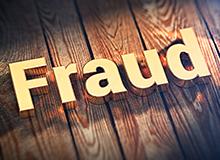Welcome to the pension website
People who joined the pension scheme before April 2006 are likely to be members of the defined benefit section of the Electricity North West Group of the Electricity Supply Pension Scheme.
People who joined after April 2006 are likely to be members of the LifeSight Master Trust.
5 questions to ask a financial adviser
Here are 5 questions you might ask an adviser before you sign up to take their advice.
Who are you regulated by?
All UK Independent Financial Advisers (IFAs) should be Financial Conduct Authority (FCA) regulated. If you use an FCA regulated adviser, you’ll be protected by UK law if anything goes wrong.
What are your qualifications?
By law, financial advisers must be qualified at a minimum QCF (Qualifications and Credit Framework) Level 4, or above. They also need to have an annual Statement of Professional Standing (SPS).
Some financial advisers may have additional qualifications, or they may have specialist knowledge in some areas. If an adviser has the right qualifications it’s a good sign that they’re legitimate, but you should still check that they’re FCA regulated.
How much do you charge for providing advice, and when do I pay?
Before they start working with you, financial advisers have a legal obligation to tell you how much they charge. Some might offer a free initial consultation, but they might then charge by the hour or a fixed fee. It depends on the service you want, but it should be agreed with you in advance.
What financial services do you offer?
It’s important your financial adviser is able to offer the help and advice you need. You could ask them about their knowledge, qualifications and experience in the areas where you need advice, for example retirement, transfers or investments.
Are you independent?
Advisers must also tell you what services they offer, including whether they’re an Independent Financial Adviser (IFA). To be called “independent” advisers must offer a range of products and providers from across the whole market, and offer impartial advice.
You can find a full list of questions you might ask a financial adviser, and more information on financial advice at moneyhelper.co.uk.






